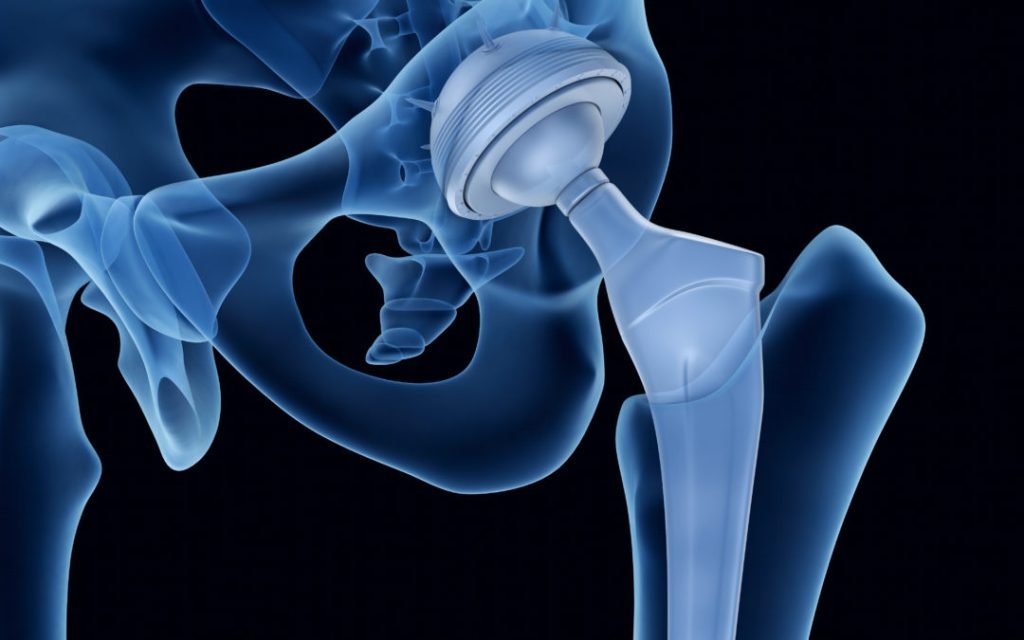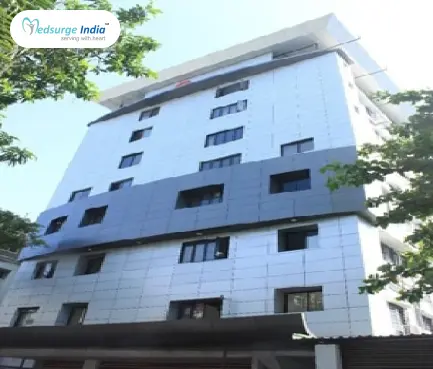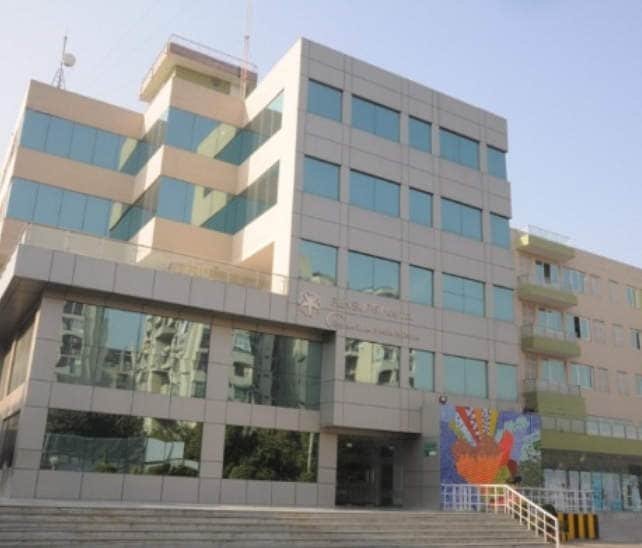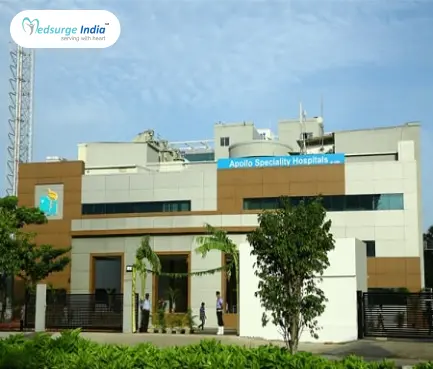
With its perfect growth in the medical area, India has risen to the top in its field. The most reputable Indian hospitals use the most up-to-date technology, which raises the success rate of treatments.
The hip replacement procedure may be recommended by your doctor if you experience severe hip discomfort. Your hip bones are regularly replaced by artificial ones during this treatment, letting you move more freely and pleasantly. After a hip replacement, you must follow a lot of guidelines to keep yourself safe and recuperate.
Hip replacement surgery in India is mostly performed by highly skilled and experienced orthopedic surgeons and the rate of recovery for the surgical procedure totally depends upon the age of the patient and the type of surgery chosen.
Hip Replacement Surgery Cost in India is more affordable in India than in any other country. This is one of the primary reasons why people come for hip replacement surgery in India. Plus India has some of the best hospitals for hip replacement. It is an expensive treatment, particularly in Western countries. Because it is a complicated surgery, it should only be performed by a highly skilled and trained orthopedic surgeon.
Recommended Video – Hip Replacement Surgery In India- Nigerian Patient Testimonial
What Is Hip Replacement
Your hip is a ball-and-socket joint that joins your leg’s thigh bone (femur) to your pelvis. Your femur has a ball-shaped “head” at the top that fits into the acetabulum (the socket). Ligaments, tendons, and muscles surround the joint and keep it in place. Your hip is the most flexible and free-moving joint in your body, allowing you to move backward and forward, to the side, and rotate.
This procedure involves replacing your hip (or sections of it) with a man-made implant (prosthesis). It is frequently performed on adults after other treatments like using a cane or walker, losing weight, taking medications, and having physical therapy that has failed to work. You may require a hip replacement as a result of:
- Osteoarthritis
- Arthritis (rheumatoid arthritis, psoriatic arthritis)
- Syndrome of femoroacetabular impingement
- Injuries caused by a fall, such as a hip fracture or dislocation
- Hip dysplasia in childhood
- An injury that did not heal properly
- Osteonecrosis (avascular necrosis)
- Neoplasms
- Hip diseases in children, such as Legg-Calvé-Perthes disease and slipping capital femoral epiphysis
Hip replacements are classified into two types:
- Total hip replacement: A total hip replacement entails replacing the acetabulum and femoral head with a prosthesis.
- Partial hip replacement: A partial replacement replaces only the femoral head. This is usually performed on patients who have particular types of hip fractures.
What Symptoms Might Indicate the Necessity for a Hip Replacement
In general, everybody is a candidate for hip replacement surgery. Candidates for this procedure are not classified based on their age, course, or degree of activity. The majority of patients are between the ages of 60 and 80. However, the procedure is not limited to the elderly. Some of the symptoms listed below may be related to diseases that hip replacements resolve. They are as follows:
- Pain in the groin or anterior hip
- Buttock and trochanteric area pain
- Pain during and after normal physical activities
- Pain that worsens as you put weight on your leg
- Hip stiffness or rigidity
- Motion impairment
- Sleeping difficulties
- Walking is difficult
- Experiencing difficulties putting on shoes and socks
However, hip replacement surgery in India is not appropriate for everyone. Even if a person is in pain and can’t move their hip as well as they should not be considered automatically for a hip replacement. If you have any of the following, you may be ineligible:
Heart failure, anemia, a recent myocardial infarction (heart attack), unstable angina, and other severe medical complications.
- An infection that is active
- A juvenile skeleton
- Muscle weakening that is irreversible or permanent
- Quadriplegia, paraplegia
- A neuropathic joint (Charcot)
- Obesity with severe morbidity
How Is a Hip Replacement Diagnosis Made
For hip replacement surgery in India, the doctor will first do a physical examination and a thorough history allowing the physician to discover any link between the symptoms of pain and past history and demands placed on a hip. The doctor will enquire about any instances of instability or damage and examine the tendons and hip arrangement. In addition, based on the assumed or known causes of pain, the physician recommends one or more specialist tests to make a diagnosis for hip replacement surgery:
- Arthrogram
- Aspiration
- Bone densitometry examination
- CT scan (computed tomography)
- Magnetic resonance imaging (MRI)
Best Hip Replacement Surgery Options Available in India
For hip replacement surgery in India, one can select from a broad range of medical procedure substitutions identified with hips in Indian hospitals because it entirely depends on the level of association necessary throughout the medical process and the extent of harm that needs to be repaired. The orthopedic specialist evaluates the patient’s condition. They also educate patients on which type of hip replacement surgery they might undergo. The following are some of the different types of hip replacement medical procedures:
- Hip resurfacing
- Partial hip replacement
- Minimally invasive hip replacement
- Revision hip replacement
- Double hip replacement
- Robotic hip replacement surgery
- Total hip replacement
If you are suffering from bone and joint issues, the best orthopedic surgeon in India will advise you on which treatment is perfect for you to depend on your certain case history. Also, they will offer you affordable hip replacement surgery cost in India.
Hip Replacement Surgery Cost in India
Hip Replacement Surgery Cost in India starts from Rs 3,32,000 (4,000 USD). The entire hip replacement surgery cost in India can also depend on a number of criteria, such as:
- Doctor’s competence and experience in the subject.
- The patient’s situation: The patient’s disease and whether additional modalities are required for comprehensive treatment.
- The price of treatment packages can depend on the hospital’s preference.
- Duration of hospitalization and stay in the country.
- Need for post-operative care.
- Hospital room classification.
Hip Replacement Surgery Cost in Various Cities in India
City Cost (INR)
Bengaluru INR 2,35,000 – INR 4,80,000
New Delhi INR 2,10,000 – INR 4,15,000
Mumbai INR 2,12,000 – INR 4,90,000
Gurgaon INR 1,30,00 – INR 1,90,000
Chennai INR 2,35,000 – INR 4,80,000
Hyderabad INR 3,60,000 – INR 5,90,000
Pune INR 2,80,000 – INR 5, 70,000
Kolkata INR 3,05,000 – INR 5,60,000
Kochi INR 2,55,000 – INR 4,85,000
*Note – The cost variables described above are not constant. It could be determined by the country and type of treatment chosen.
Helpful -:
Best Orthopedic Surgeons in India
Get Free Cost Estimation
Procedure
How Hip Replacement Surgery in India is Performed
Before the Procedure
You will undergo an examination with the orthopedic surgeon before the surgery. The surgeon could:
- Enquire about your medical history as well as your current medications.
- Examine your hip, paying special attention to the joint’s range of motion and the strength of the surrounding muscles.
- Conduct blood tests and an X-ray. An MRI is rarely required.
- Ask any questions you have about the procedure during this appointment. Find out which drugs you should avoid or continue to take in the week leading up to surgery.
During the Procedure
- The surgery takes a couple of hours and is performed under general anesthesia.
- Damaged bone and cartilage are removed, and new metal, ceramic, or plastic implants are placed to restore hip alignment and function.
- A cut is made across the face of the hip, and the muscles are transferred to connect them to the thighbone’s peak, exposing the hip joint.
- The ball component of the joint is then removed by cutting at the thighbone with the help of a saw.
- Following that, the artificial joint is attached to the thighbone using either a special substance that allows the bone to bond to the new joint.
- Following that, the artificial joint is attached to the thighbone using either a special substance that allows the bone to bond to the new joint.
- The hipbone’s surface is prepared by removing any damaged cartilage before the replacement socket component is attached to the hipbone.
- The thighbone’s ball component is then inserted into the hip’s socket component. Following the procedure, the doctor attaches the muscles and sutures the incision.
Helpful – What is Hip Preservation and What Are its Benefits?
After the Procedure
You’ll be taken to a recovery area for a few hours after surgery to allow your anesthesia to wear off. Your blood pressure, pulse, consciousness, pain or comfort level, and medication requirements will be monitored by medical personnel.
Deep breaths, coughing, or blowing into a device will be encouraged to assist keep fluid out of your lungs. The duration of your stay after surgery is determined by your specific needs. Many people can go home that day.
Why Do Individuals Prefer to Have Hip Replacement Surgery in India
Certainly, India is a popular destination for those seeking low-effort hip replacement medical procedures. The cost of hip replacement surgery in India is typically a fraction of the cost of a comparable procedure and consideration in the United States and other developed countries. In any case, the cost may vary depending on the type of medical procedure, the use of inserts, and the patient’s other conditions. As a result, the final charges given to patients are entirely based on their clinical reports, as well as the patient’s current condition, type of medical procedure, type of room, the specialist’s skill, and hospital brand.
Best Hip Replacement Hospitals in India
- Artemis Hospital Gurgaon
- Fortis Hospital Gurgaon
- Indraprastha Apollo Hospital New Delhi
- Apollo Hospitals, Greams Road, Chennai
- MGM Healthcare, Chennai
- Global Hospital Chennai
The best hip replacement surgery in India provides comprehensive appropriate treatment, including comprehensive pre-operative evaluations, minimally invasive surgical options, and post-operative rehabilitation programs. Patients can expect personalized treatment, individualized attention, and compassionate care at these medical facilities. The hospitals are accredited by top international organizations such as the National Accreditation Board for Hospitals and Healthcare Providers (NABH) or the Joint Commission International (JCI).
There are various reasons why hip replacement surgery cost in Indian hospitals are among the best for treating hip ailments. Among these elements are:
- India has the lowest cost for hip replacement surgery
- Diagnostic, therapeutic, and preventative health service quality
- Hospitals give complimentary services and facilities
- Possibility of combining leisure and procedure
- There is no waiting period for surgery
Recovery Rate
Full recovery following a hip replacement varies from person to person, however, most patients are doing well three months after the surgery. Typically, improvements remain for the first year after surgery.
The replacement hip joint can alleviate pain and increase the hip’s range of motion. But don’t expect to be able to accomplish everything you could before the hip discomfort sets in.
High-impact activities, such as jogging or basketball, may be too demanding on the artificial joint. However, most people can eventually participate in lower-impact sports such as swimming, golfing, and cycling.
How Can Medsurge India Help?
Medsurge India is a prestigious support system for patients looking for doctors, hospitals, and specialized treatments. We’ll find the most suitable medical options for you. Regarding your medical issues, our team will give you a list of certified, reputable, and trusted doctors and hospitals. Additionally, we offer a treatment strategy that fits your budget. Apart, we assist patients with obtaining travel authorizations, medical visas, and a multitude of other things.
The Most Important Frequently Asked Questions
Q: What Choices Do I Have Apart from Going with Hip Replacement Surgery?
A: Exercise, like walking and getting treated rightly and on-time with qualified doctors, would reduce the risk of going for hip replacement surgery in India. The surgery is the last option doctors go for.
Q: What Is the Apt Way to Get Yourself Prepared for Hip Replacement Surgery?
A: Well, go for the low impact cardio exercises according to the expert surgeons. You must pick an exercise, like biking, swimming. All these exercises assist in surgery preparation and thus, enhance the indication of arthritis.
Q: What Is the Disorder or Dislocation of the Hip?
A: Dislocation of the hip happens when the femoral head (ball) leaves the hip bone socket (attachment).
Q: What’s the Cause of the Failure of the Hip Replacement?
A: The most widely recognized explanation behind loosening is the extricating of the artificial ball where it is made sure about in the femur or loosening of the socket. Wearing of the plastic spacer may likewise bring about the requirement for an update.
Q: What Is Revision Surgery?
A: Revision medical procedure is performed when another medical procedure must fix a bombed hip embed. Failure can come from typical mileage or a defective device. These subsequent techniques are thought about complex and altogether obtrusive.
Q: Does a Blood Transfusion Is Required After the Surgery?
A: YES! A patient requires a blood transfusion after the surgery.
Q: How Long Will My Scars Be Visible and Where They Would Be Located?
A: Expect your scars to be about 6 to 8 inches long that too along the side of your hips.
Q: After How Many Days a Patient Could Abandon Using a Raised Seat of the Toilet After the Surgery?
A: 6 to 10 weeks are required if a patient wants to discontinue using a raised seat of the toilet after the hip replacement option.
Q: from When Can the Patient Rest on His Toilet Site After a Hip Replacement?
A: Patients can rest on the toilet side at whatever point they feel good. They may rest on their non-usable side for about a month with a pad between their knees.
Q: How Long Does a Patient Need to Apply Bandages After the Treatment or Surgery?
A: You would require a bandage for around seven to ten days after your hip surgery. Although changing the bandage daily is required to eliminate itching and infection.
Q: When Can I Baptize My Hips in the Water While Bathing After the Hip Replacement Surgery?
A: Feel free to immerse your hip in water after 14 to 17 days after reviewing whether the drainage from the incision site is present or not.
Q: Can I Start Putting Weights After the Surgery?
A: We suggest that NOT TO DO SO! it is because you should avoid using weight for the first 2 to 3 months after your hip surgery. However, if you are keener to do so, consult your doctor first.
Q: Can an Individual Set Off the Machines at the Air Terminal Security After the Medical Procedure and Is a Specialist Note Required?
A: An: A patient set off the machines at air terminal security, relying upon the kind of hip embed the patient has and the affectability of the security checkpoint hardware. At the subsequent visit, the patient may request to have a wallet card to convey while voyaging.
Q: What Are the Activities I Can Go for After the Surgery?
A: Only go for the activities that do not put excessive or extra weight on your hips like walking, gardening, playing golf. However, swimming is also advisory.
Q: What Are the Activities I Should Stop Following the Surgery?
A: Weight put activities on hips you should skip or avoid extreme sports like hiking, trekking, cricket, football, and similar.
Q: What Is the Approx Duration of the Hip Replacement Surgery?
A: The hip replacement surgery lasts for more than 10 to 15 years. However, moreover, it depends upon the hospital, team of qualified doctors you select for your surgery.
Q: Is a Patient Allowed to Kneel Following the Surgery?
A: YES! But after the 6 to 7 weeks of the surgery. Arising the non-operative leg first is suggested by the top-notch surgeons.
If you are looking for something specific about the hip replacement surgery in-depth, you can drop your queries in the comments section. We will prepare a separate blog for all the questions we will receive in our comments section.
Top Hospitals
Top Doctors for Orthopedics
Dr. Bhupendra Pratap
Consultant
Experience: 13 years of experience
BLK Super Speciality Hospital, New Delhi
New Delhi, India
Dr. Ankit Chawla
Consultant
Experience: 12 years of experience
Marengo Asia Hospitals, Faridabad
Faridabad, India
Dr. Vijaya Mohan S
Consultant , Fellowship, DNB, D.Ortho, MBBS
Experience: 18 years of experience
Kochi , India
Dr. Devender Singh
Consultant
Experience: 26 Years
IBS Institute of Brain and Spine, New Delhi
New Delhi, India
Dr. Ayan Roy
Visiting Consultant
Experience: 13 years of experience
Calcutta Medical Research Institute, Kolkata
Kolkata, India
Dr. Vinay Gupta
Consultant
Experience: 40 years of experience
Saroj Super Speciality Hospital
New Delhi, India
Dr. Sanjeev Mahajan
Arthoscopy and Sports Medicine Director
Experience: 20 years of experience
Ludhiana, India
Dr. Raghava Dutt Mulukatla
Consultant
Experience: 36 years of experience
Apollo Hospitals, Jubilee Hills Hyderabad
Hyderabad, India
Dr. Madhan Thiruvengada
Consultant
Experience: 25 years of experience
Apollo Hospitals, Greams Road, Chennai
Chennai, India





































































